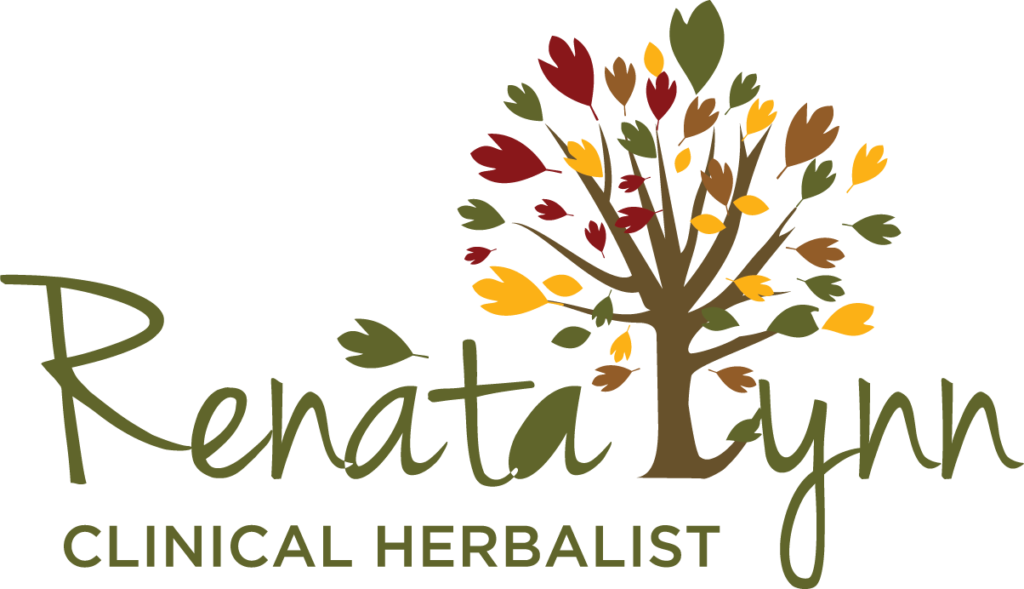Overwhelmed and Anxious? Find Uplift With These Natural Solutions

Hi, I am a 48 year old wife and Mom with a rewarding career and lately I’ve been feeling overwhelmed, anxious,and disinterested. My gynecologist suggested antidepressants, but I have serious concerns about taking them. What else can I do to improve my mood? Are there herbs that can help? Andrea Charlottesville, VA
This is a great question and the good news is that there are lots of things that can help. First, you are far from alone in the feelings that you describe. In my practice I see a lot of women around your age, and without exception they are taking stock and looking toward the future.
Typically, they’ve happily given 110% and more to their careers, families, communities, churches, causes, etc. and while their pursuits have been rewarding, many women are burnt out, have low energy and they know they need to make changes. Some are also doing the work of healing old wounds, moving through grief, and letting go.
This is also a time when women are in some stage of perimenopause or menopause and moving into a new life stage. It is a time for reevaluating priorities and strengthening foundations of wellness so they can thrive – now and into the future. There is a lot going on for women at this time of life, and many women don’t have the space in their lives to do this vital work.
You are also not alone in your concern about taking antidepressants.
In June 2012, the American Psychological Association publication ‘Monitor on Psychology’ ran a cover story titled “Inappropriate prescribing” that examined this issue in depth.
In his TEDx talk, depression researcher, Dr. Stephen Ilardi describes depression as a “disease of civilization”. In his talk Dr. Ilardi points out that while use of antidepressants is increasing so are rates of depression; and while he’s not anti-medication he says that medication alone will never solve the problem.
He asserts that our bodies and brains evolved to live lives very different from the modern lifestyle – where we are largely indoors, sedentary, isolated from each other, and our food often lacks the nourishment we need. Dr. Ilardi has developed a treatment plan that is similar, in many ways, to the approach that herbalists have been using for a long time and is based on making changes in lifestyle that improve overall wellbeing as well as psychological wellbeing. (All of that being said…. if you have been diagnosed with a mental illness, like depression, do not try to go it alone. Medication and other therapies may be a necessary part of your care and it is critical that you work with professionals who can support you in making the best choice for your situation).
Ready for some quick tips on lifestyle changes that can greatly benefit our mood and overall wellness?
(In future posts, I’ll examine each more deeply, including the connection to mental health, and my favorite herbs to support positive changes in each area. Click here to subscribe so you don’t miss anything.)
Nourishing food
Spring is here! And summer is right around the corner. That means that there is an abundance of fresh, local fruits and veggies. So eat lots of them! Try to eat some of each color of the rainbow every day, and you’ll get the beneficial effects from the full variety of plant compounds.
Sleep
Get enough sleep. The amount of sleep we need varies between individuals, with most people’s nightly needs falling somewhere between 7 and 9 hours. Be sure to honor your individual needs; structure your schedule so you have the time to get enough sleep. If you’re having difficulty sleeping consider putting away the screens (or at least use a blue light filter) and dimming the lights two hours before bedtime. Designing and following a bedtime routine is a powerful signal to your body that you’re preparing for sleep.
Movement
Think outside of the exercise box when it comes moving your body. You don’t have to hit the gym to benefit from physical activity. Taking a walk in the park or playing Frisbee with your friends are great ways to get moving and have the added benefit of getting outdoors into the fresh air and sunshine. Dance is another great way to get moving and often offers the added benefit of being highly social.
Creativity
Many studies have found a positive relationship between creative expression and psychological and physical health. So if you’re not already involved in some creative pursuit start trying different things until you find something that resonates. Your local community center is a great place to start. Try taking up an instrument, drawing or watercolor, or a craft like pottery or stained glass. Gardening is one my favorite creative outlets because it get us outside, gets us moving and can produce fresh, nourishing food.
Social connection
This is vital to our wellbeing and different people need different levels of social connection, so be sure to honor your needs. Meet up groups are a great way to meet and spend time with others who have a common interest. For more intimate gatherings schedule weekly or monthly meals with family and friends, preparing the meals together adds to the enjoyment.
Connection with nature’s rhythms
This is an overlooked, yet important contributor to our wellbeing. We have evolved living in harmony with natural rhythms and cycles and our modern lives often cut us off from that. But, if we recognize the importance of this harmony and approach it with some intention we can strengthen the connection. Some ideas to get started: Mark the new moon and the full moon, the new moon is great time to set intention and the full moon is a great time to reflect on the manifestation of intentions. Choose one tree, shrub, or perennial plant and get to know it through each season: sit with it often, notice the color of its leaves, its smell, when it blossoms. Sketching the plant during each season is a great way to do this.
Perimenopause/Menopause
In addition to causing a variety of physical symptoms, fluctuating hormone levels that accompany this time of life can affect mood. The good news is that if you’re making positive changes in the areas mentioned above, you’re well on your way to building the resilience you’ll need to thrive during this time. Herbs can be a valuable support here and a consult with an herbalist is the best way to get the herbal support that’s best for your unique needs. Learn more about herbal support for perimenopause at this ATH post by Amy Charnay.
Herbal Strategies to Support Balanced Mood
Two important categories of herbs I rely on for you’ll are adaptogens and nervines. Adaptogens are herbs that help restore vitality and normalize our physiological response to stress. Nervine herbs effect the nervous system and are vital allies when working through depression and anxiety. There are many herbs in these categories that support balanced mood. Here are a few of my favorites:
- Ashwaganda (Withania somnifera) Ashwaganda is and Ayurvedic herb and has a tonic effect on the adrenal glands and helps restore balanced communication between the endocrine and nervous systems. It is one of my go-to’s when there is nervousness and anxiousness coupled with exhaustion.
- Eleuthero (Eleutherococcus senticosus) Eleuthero has a tonic effect on the adrenal glands; not stimulating, yet helps to rebuild energy and vitality and is extremely useful when a person is suffering from burn out.
- Holy Basil (Occimum sanctum) Another Ayurvedic herb, holy basil has both adaptogen and nervine activities and is at the top of my list when sadness, grief, and melancholy are key themes. Learn more about Holy Basil at this ATH post by Henriette den Ouden.
- Lemon balm (Melissa officinalis) In addition to its amazing anti-viral properties, lemon balm has a cheerful, sunny energy and is my favorite herb for bringing an uplifting brightness to the mood.
- Skullcap (Scutellaria lateriflora) A versatile relaxing nervine and nervous system tonic, skullcap eases anxiety, irritability, and is especially helpful when there are elements of exhaustion and depression.
To make a wonderfully relaxing, restorative and uplifting tea
combine 1 tsp each:
holy basil
lemon balm
skullcap
rose petals
Add 2 cups just boiled water and let sit covered for 15 minutes, then strain.
Ease into a relaxing place (perhaps with the plant you’ve chosen to get acquainted with) and enjoy!
Implementing the suggestions above should really help improve your mood, and an herbalist can help you get the herbal support that’s just right for you. AND, if you ever feel your mood is worsening, despite your efforts to address it with lifestyle, nutrition and herbs, please seek medical care
The post “Overwhelmed and anxious? Find uplift with these Natural solutions” originally appeared on Ask The Herbalists blog May 31 2018
